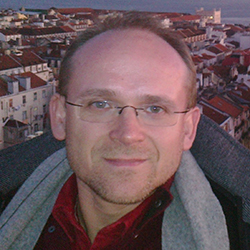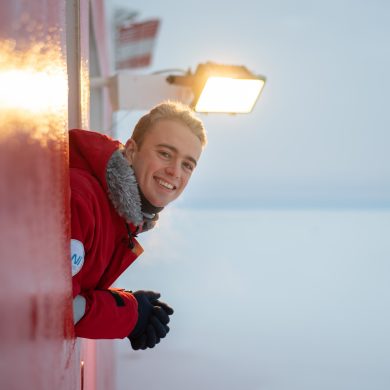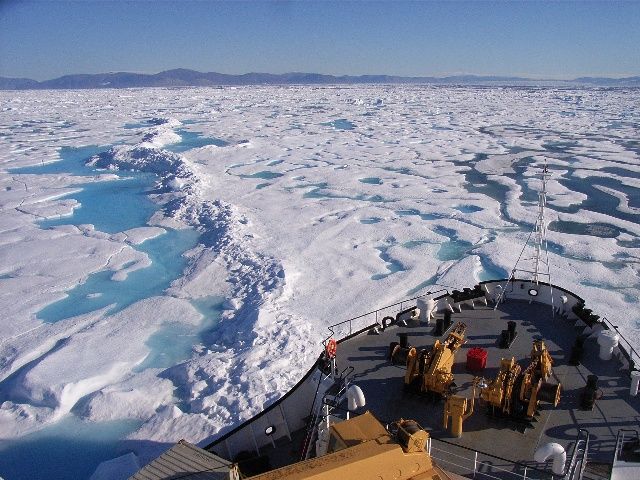Date/Time
Date(s) - 11/11/2020
4:00 pm - 5:30 pm
Categories

 Join us this coming Wednesday 11 November to listen to and discuss with two Oxford researchers about the state of Arctic sea ice modelling: Dr Neven Fučkar (ECI, University of Oxford) and PhD candidate Sam Cornish (Department of Earth Sciences, University of Oxford).
Join us this coming Wednesday 11 November to listen to and discuss with two Oxford researchers about the state of Arctic sea ice modelling: Dr Neven Fučkar (ECI, University of Oxford) and PhD candidate Sam Cornish (Department of Earth Sciences, University of Oxford).
Dr Fučkar will devote the first 30 minutes to present the state-of-the-art of sea ice modelling. This will be followed by a ~15min presentation by Sam Cornish on his research on sea ice formation in the Laptev and Kara Seas, and how it relates with current sea ice modelling efforts. We will close this event as usual with a discussion/question time.
An abstract for each of the talks this Wednesday follows:
-
When: Wednesday 11 November 2020, 16h UK time
-
Speaker: Dr Neven Fučkar (ECI, University of Oxford)
-
Title: On the state-of-the-art predictions and projections of Arctic sea ice cover
“The September 2020 monthly mean sea-ice extent (SIE) in the Northern Hemisphere was 3.92 million km2. This is the second lowest Arctic SIE in the satellite record that began in 1979 (September 2012 was the lowest: 3.29 M km2). Overall, the Arctic sea-ice extent, area and thickness have decreased rapidly since 1970s, and the signal of a forced sea ice retreat has clearly emerged from the background noise of interannual (internal) variability. Ergo, the ability of climate models to realistically predict/project the observed and future variability and change in Arctic sea-ice cover has become a crucial measure of global and regional model performance. We are going to review the state-of-the-art of seasonal, observationally initialised, predictions of Arctic sea ice cover within the framework of the Sea Ice Prediction Network (SIPN, https://www.arcus.org/sipn). Furthermore, we will examine centennial, observationally uninitialised, projections performed under the umbrella of multiple phases of Climate Model Intercomparison Project (CMIP, https://www.wcrp-climate.org/wgcm-cmip). CMIP and SIPN activities are supported by an increasing number of academic, research and operational institutions around the world, however fidelity and skill of even the latest generation of climate models provide significant room for improvements in the areas of sea-ice and climate model development and initialisation”.
Immediately followed by:
-
When: Wednesday 11 November 2020, 16:35h UK time
-
Speaker: PhD candidate Sam Cornish (Department of Earth Sciences, University of Oxford)
-
Title: Investigating sea ice production in the Arctic Ocean “Sea Ice Factories”: implications for model predictions under climate change
“It is a robust feature of climate model predictions that year-on-year losses of sea ice area are more severe in summer than winter, up until the summer is effectively ice-free. As less and less ice survives the summer, winter ice production becomes vital for restoring the Arctic sea ice pack before the onset of another melt season; this seasonal cycle of freeze and thaw increasingly dominates the Arctic ice budget. We seek here to understand some of the mechanisms underlying the winter part of that cycle.
The Kara and Laptev seas have long been dubbed the ‘ice factories’ of the Arctic; much of the ice that supplies the central Arctic and Transpolar drift is produced in these shallow seas, where polynyas form with offshore winds. Here, we extend this analogy of ice factories to introduce a simple linear model for ice production, based on regression analysis with sea ice divergence. This provides a useful conceptual framework, helping us to understand changes in winter ice production in terms of competing effects activated by climate change. It also has high levels of skill when applied to climate model predictions. We will take a look at the negative feedbacks that promote more winter ice growth, and see how the balance between competing mechanisms shifts through time in a climate model (CESM)”.
As usual, our events are held in Zoom:
-
No booking required.
-
Venue: Join Zoom Meeting https://us02web.zoom.us/j/75897475732?pwd=WVA5VDFwdEhraW5CWG1uS1NzdU1EZz09
-
Meeting ID: 758 9747 5732 || Passcode: 285840
One tap mobile
+442034815240,,75897475732#,,,,,,0#,,285840# United Kingdom
+442039017895,,75897475732#,,,,,,0#,,285840# United Kingdom
Dial by your location
+44 203 481 5240 United Kingdom
+44 203 901 7895 United Kingdom
+44 131 460 1196 United Kingdom
+44 203 051 2874 United Kingdom
+44 203 481 5237 United Kingdom

